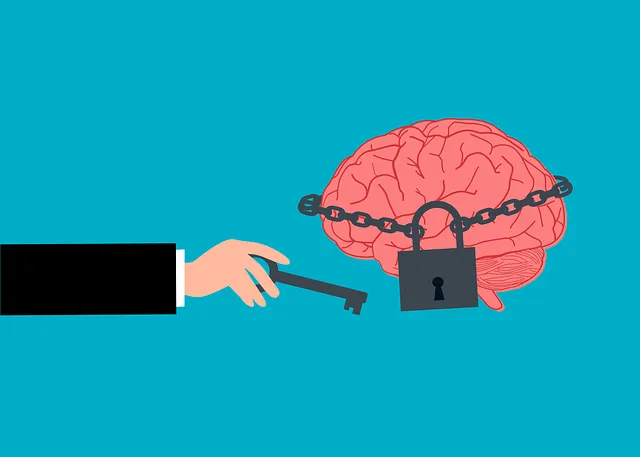Denver Kaiser Permanente's behavioral health services offer crucial mental wellness coaching programs, addressing growing mental health concerns in today's fast-paced world. These programs provide structured yet adaptable curricula integrating crisis intervention and self-awareness exercises, leveraging evidence-based practices for stress management, mindfulness, and emotional regulation. With technology integration, including video conferencing and mobile apps, remote coaching expands reach, strengthens empathy, and allows data-driven adjustments. Measured through KPIs, these initiatives ensure continuous improvement, refining content to meet community needs and prevent healthcare provider burnout, ultimately fostering mental wellness and resilience.
Mental wellness coaching programs have emerged as a pivotal strategy in addressing the growing demand for accessible, personalized support. With a focus on preventive care, these programs aim to empower individuals to manage stress and promote overall well-being. This article explores the development of such initiatives, from identifying the need for mental health support beyond traditional therapy, to designing effective curricula, integrating technology for remote access, and measuring success post-program. By examining these aspects, we highlight innovative approaches, including Denver Kaiser Permanente’s behavioral health services as a model for comprehensive care.
- Understanding the Need for Mental Wellness Coaching Programs
- Designing Effective Coaching Curricula and Frameworks
- Integrating Technology for Remote Access and Personalization
- Measuring Success and Continuity Post-Program Implementation
Understanding the Need for Mental Wellness Coaching Programs

In today’s fast-paced and often stressful world, mental wellness is an integral aspect of overall health. This is where Denver Kaiser Permanente behavioral health services come into play, offering a crucial resource for individuals seeking support. With a growing recognition of the impact of mental health on daily functioning, there is a rising demand for specialized coaching programs. These programs aim to empower individuals with effective tools and strategies to enhance their well-being.
Mental wellness coaching goes beyond traditional therapy by focusing on personal growth and self-care. It involves guiding clients in developing coping skills, managing stress, and improving mood regulation. By addressing these areas, coaches help individuals navigate life’s challenges more effectively. This proactive approach is particularly beneficial for those seeking preventive measures or additional support outside of clinical settings.
Designing Effective Coaching Curricula and Frameworks

In designing effective coaching curricula for mental wellness programs, it’s essential to integrate a structured framework that caters to diverse individual needs. A well-rounded program should encompass various components, such as Crisis Intervention Guidance, tailored to address acute situations, and Self-Awareness Exercises designed to help clients understand their emotions and triggers. The curriculum must be adaptable, allowing coaches to customize sessions based on progress and unique challenges.
Leveraging evidence-based practices from Denver Kaiser Permanente behavioral health resources can enrich the coaching framework. Incorporating techniques that promote mindfulness, stress management, and emotional regulation equips individuals with valuable tools for long-term mental wellness. A holistic approach, considering cultural sensitivity and incorporating diverse therapeutic modalities, ensures the program resonates with a wide range of participants, fostering meaningful connections and positive outcomes.
Integrating Technology for Remote Access and Personalization

In today’s digital era, integrating technology has revolutionized Mental Wellness Coaching Programs Development. Platforms utilizing video conferencing and mobile applications enable remote access to coaches, making behavioral health services more accessible, especially for individuals in remote areas or with busy schedules. This shift is exemplified by Denver Kaiser Permanente’s behavioral health number, which offers a convenient way for members to connect with coaches from the comfort of their homes. Remote coaching not only expands reach but also fosters Empathy Building Strategies through personalized interactions. Coaches can tailor sessions based on individuals’ unique needs and preferences, enhancing engagement and outcomes.
Furthermore, technology allows for data collection and analysis, enabling coaches to track progress and adjust strategies accordingly. This digital approach ensures that mental wellness coaching becomes more efficient, effective, and tailored to each client’s journey. By leveraging technology, Public Awareness Campaigns Development can also be enhanced, reaching a broader audience with targeted information about available resources, promoting overall mental health awareness and care.
Measuring Success and Continuity Post-Program Implementation

Measuring success and ensuring continuity post-program implementation are crucial aspects of any mental wellness coaching initiative. Organizations like Denver Kaiser Permanente behavioral health number have recognized this need, incorporating robust evaluation frameworks to assess the impact of their community outreach program implementation. By tracking key performance indicators (KPIs), such as participant engagement, completion rates, and improvements in self-reported mental health outcomes, they gain valuable insights into the program’s effectiveness.
Furthermore, these evaluations inform the refinement of burnout prevention strategies for healthcare providers, ensuring that the programs remain relevant and impactful over time. Continuous improvement cycles, driven by data collected during post-program follow-ups, allow for the adaptation of Stress Management Workshops Organization content and delivery methods to meet evolving community needs. This holistic approach not only enhances the overall mental wellness coaching experience but also fosters a culture of resilience within healthcare provider networks.
Mental wellness coaching programs are a game-changer in fostering holistic well-being. By designing tailored curricula, integrating technology for remote accessibility, and implementing effective measurement strategies, these programs can significantly impact individuals’ lives. As seen with the success of Denver Kaiser Permanente’s behavioral health initiatives, addressing mental health proactively through coaching is not only possible but essential. Continuously evaluating and adapting these programs ensures their effectiveness in meeting diverse needs, ultimately enhancing overall well-being.



